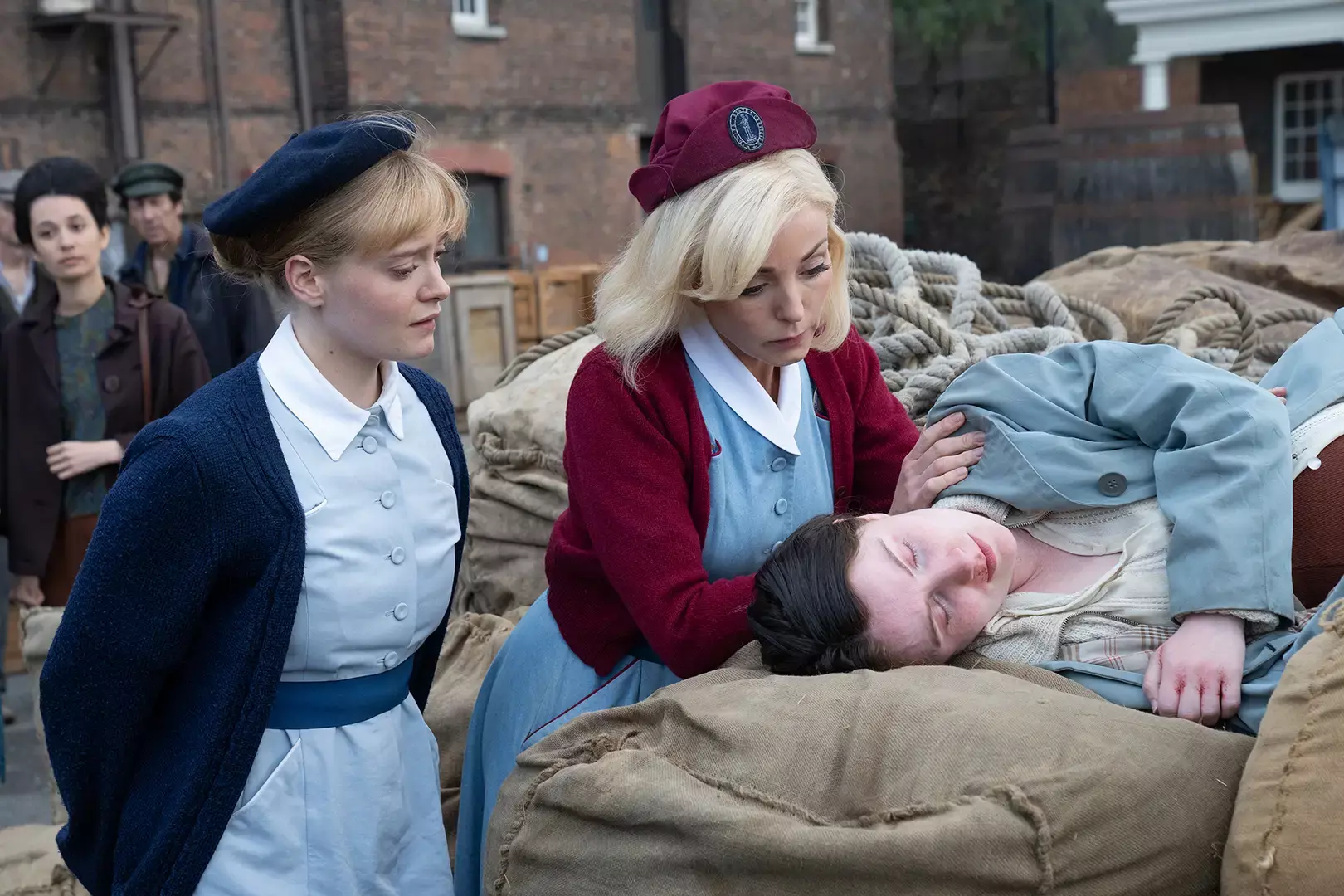I really enjoy the storylines that give us a glimpse into the midwives’ work as primary care providers. The scene early on in this episode with midwife Phyllis Crane (played by Linda Bassett) tending to the dying gentleman reminds us that midwives were public health nurses at that time. It also reminds us that today’s midwives also provide primary care services to our patients. Even some women who see us regularly during their pregnancies and have us “catch” their babies may not realize that they can continue to see us for their primary care needs, annual exams, etc. when they are not pregnant.
That leads us to the storyline of the gentleman’s daughter, Gladys Bell, who is diagnosed with cancer that is related to asbestos exposure. Mesothelioma is cancer of the inner lining of the abdomen and chest, which is what the woman appears to have. At the time, injections of gold in solution was an early treatment for the cancer, which is mentioned in the episode.
The other compelling storyline in Episode 6 involves Deidre who has experienced domestic violence, or what is now called “interpersonal violence.” This scenario is as old as time: the abused woman tries to leave to protect her children, finds herself with little to no resources, and has to make decisions out of desperation that no mother should ever have to make. Can you imagine the feeling that you have no better option than leaving your children in a church hoping they will be found and cared for by a kindly soul? Homicide is one of the leading causes of death in pregnancy as interpersonal violence is often heightened during this most vulnerable time in a woman’s life.
The last part of the episode, which I connected with deeply, depicts pupil midwife Rosalind Clifford attending the birth under Sister Julienne’s watchful guidance (played by Jenny Agutter). Rosalind astutely notes that the second stage – pushing part of the labor – is abnormally prolonged. At that moment, the wise Sister Julienne does not tell the student what to do; she instead asks Rosalind what she thinks should happen, allowing her to employ her critical thinking skills. You see as the student recommends and then performs an artificial rupture of membranes – “breaking the water” – after which the woman quickly pushes out the baby. Rupturing of membranes is an intervention, one which is employed as a matter of routine in the current obstetrical practice climate, and usually much earlier than when the woman is pushing.
Artificial rupture of membranes has long been debated, particularly early rupture of membranes (i.e. when the cervix is dilated less than four centimeters). While it can shorten the interval of time to birth, no intervention is without risk, and the patient and her partner should be aware of those risks so that they can give fully- informed consent. Prolapse of the baby’s umbilical cord in front of the baby’s head and out into the vagina is a risk, necessitating emergency cesarean delivery, but less so when the fetal head is well applied to a cervix with advanced dilation, as was the case in this episode.
However, there is a much higher risk of prolapse when the fetal head is not well applied to the cervix, as can be typical in early labor. Additionally, infection is a realistic risk, though, not an issue for the woman minutes away from giving birth as it is for the woman who has hours remaining in her labor after the water bag is broken. Buyer beware… sometimes women are given the rationale, “We do this all the time in labor.” And while that may be so, it doesn’t diminish the risks inherent in the intervention. A hallmark of midwifery care is that we use intervention, yes …. when it is appropriate and indicated; not just because it’s available to us.
